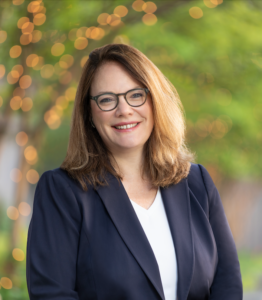This year is shaping up to be the year of the Social Impact Bond (SIB). Two announcements this week on either coast highlighted the momentum behind SIBs, also called Pay For Success (PFS) initiatives.
Massachusetts today launched the nation’s largest yet, a seven-year, $27-million effort, just weeks after New York state announced what was at the time the biggest, at $13.5 million.
Meanwhile, with funding from The James Irvine Foundation, the Nonprofit Finance Fund (NFF) announced on Tuesday initial funding of $2.5 million to help incubate and develop potential efforts in California.
NFF will select three to eight leaders throughout the Golden State to support through an initial round of funding, with additional funding available throughout the year. They will form an active learning group and will have opportunities to share experiences, challenges and results with the goal of further testing the concept and expediting additional SIB agreements.
Applications are due Feb. 28 and available online at http://nff.org/CaliforniaPFS and leaders could be identified as early as April.
The Massachusetts Juvenile Justice Pay for Success Initiative will target at-risk young men in the probation system or leaving the juvenile justice system. The commonwealth has committed up to $27 million over seven years for “success payments,” including a first-of-its-kind $11.7 million grant awarded by the U.S. Department of Labor this past September. Based on the decrease in days of incarceration, gross savings for Massachusetts could range from almost $1 million to $45 million with corresponding “success payments” ranging from $0 to $27 million.
Chelsea, Mass.-based nonprofit Roca, Inc., will provide outreach, life skills and employment training for 929 young men in more than a dozen cities in the Bay State, with the aim to reduce recidivism and help them become resources in their communities.
The goal is to reduce by 40 percent the number of days that young men in the program are incarcerated. If that goal were to be met, the project would generate millions of dollars in savings to the commonwealth that would offset the cost of delivering services. Massachusetts would be able to extend the project to additional 391 young men, serving a total 1,320 participants over nine years.
Roca’s intervention model is an intensive four-year program that includes outreach, care management, life skills, educational, pre-vocational and employment training, and work opportunities with community partners. The organization has deferred $3.3 million in fees, which will be paid only if the agreed-upon outcomes are met. In the meantime, $18 million in private financing has been secured by Third Sector Partners to fund the program, including:
- $9 million in loan financing from the Goldman Sachs Social Impact Fund;
- $1.5 million in loan financing from The Kresge Foundation;
- $1.5 million in loan financing from Living Cities;
- $3.7 million in grants from The Laura and John Arnold Foundation;
- $2 million in grants from New Profit, Inc.; and,
- $300,000 in grants from The Boston Foundation.
Remaining grant funds will be recycled into future projects after this initiative ends.
Unlike other deals, the Massachusetts transaction is not guaranteed by foundations or other nonprofits. “We’re investing in the deal the same way everyone else is,” said Tripp Jones, managing director of Boston-based New Profit, Inc.
One of Goldman’s other SIB efforts included a 75-percent guarantee from Bloomberg Philanthropies. That guarantee was necessary because it was the first in the United States and the first by a financial institution, with an unknown risk associated with it, according to Andrea Phillips, vice president in Goldman Sachs’ Urban Investment Group.
“All dollars are at risk, with no backstop. Everyone stands to lose or gain on this,” said John Grossman, partner and general counsel at Third Sector Partners and project manager of the commonwealth’s PFS initiative.
Roca, Inc. will track its own performance in recruiting and retaining participants, with “statistical mass” by the first quarter of the fifth year, to be able to determine by then whether outcomes are the result of Roca’s efforts versus just luck.
Massachusetts will pay 5 percent annual interest (1.25 percent per quarter) during the life of the project to Goldman Sachs, and 2 percent annually to junior lenders Kresge Foundation and Living Cities.
In addition, at higher levels of impact, Roca and Goldman could receive up to $1 million and Kresge and Living Cities up to another $300,000 each – but not until the final year.
Massachusetts has authorized $50 million launching PFS initiatives, and in addition to this $27-million effort, others are planned to address chronic individual homeless and possibly adult basic education in the future.
The largest SIB to date had been New York State’s $13.5-million effort announced last month, with the help of Bank of America Merrill Lynch, to expand programming by the Center for Employment Opportunities (CEO) focused on employment and recidivism. There also has been a $9.6-million SIB initiative in New York City, with help from Bloomberg Philanthropies and Goldman Sachs, focused on the juvenile justice system as well as a $7-million effort in Utah centered on early childhood education, with involvement from United Way, Goldman Sachs and the Pritzker Family Foundation.
NFF’s effort aims to locate at least three projects that are furthest along in the process, according to Jessica LaBarbera, director, strategic innovation, adding that the goal would be to get two or three projects to completion in the next two years. The majority of work will be to assess the viability of potential projects, providing technical assistance and connecting people, while also examining data and cost-benefit analysis to determine if significant populations are reached and savings generated.
LaBarbera expects efforts will focus on data analysis, project design and determining if cost savings can be monetized. The $2.5 million in funding from the Irvine Foundation is designed to be flexible, she said, and could cover such costs as legal support or legal structuring, nonprofit capacity or determining needs for impact evaluations.
California’s PFS initiative will provide “flexible funding and expert support to help nonprofit government leaders structure agreements in California over the next two years.” The initiative will nurture a group of leaders that will learn from each other and share knowledge as they take PFS from concept to reality.”
While PFS has generated tremendous interest as a concept, they are “complex agreements that are difficult to develop because they require multiple partners to do business in new ways,” Don Howard, executive vice president of the Irvine Foundation, said in announcing the funding. “That’s why so few Pay For Success agreements exist nationally, with none yet in place in California. Our goal is to catalyze the creation of these agreements so that the promise of Pay For Success can be realized for the benefit of all Californians,” he said.












